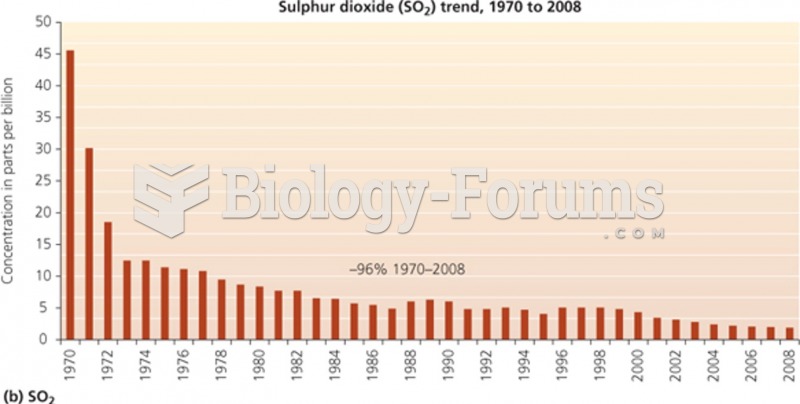This topic contains a solution. Click here to go to the answer
|
|
|
Did you know?
Fewer than 10% of babies are born on their exact due dates, 50% are born within 1 week of the due date, and 90% are born within 2 weeks of the date.
Did you know?
The horizontal fraction bar was introduced by the Arabs.
Did you know?
Once thought to have neurofibromatosis, Joseph Merrick (also known as "the elephant man") is now, in retrospect, thought by clinical experts to have had Proteus syndrome. This endocrine disease causes continued and abnormal growth of the bones, muscles, skin, and so on and can become completely debilitating with severe deformities occurring anywhere on the body.
Did you know?
Vaccines prevent between 2.5 and 4 million deaths every year.
Did you know?
The first documented use of surgical anesthesia in the United States was in Connecticut in 1844.







